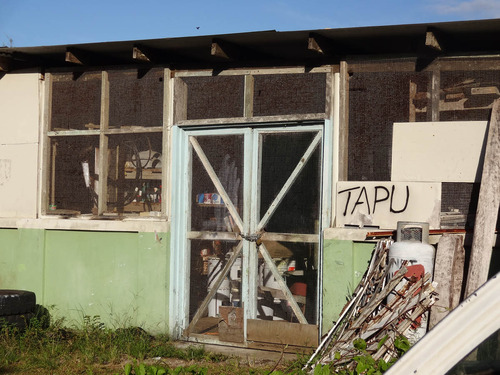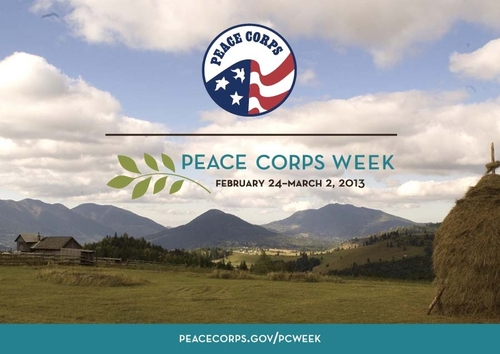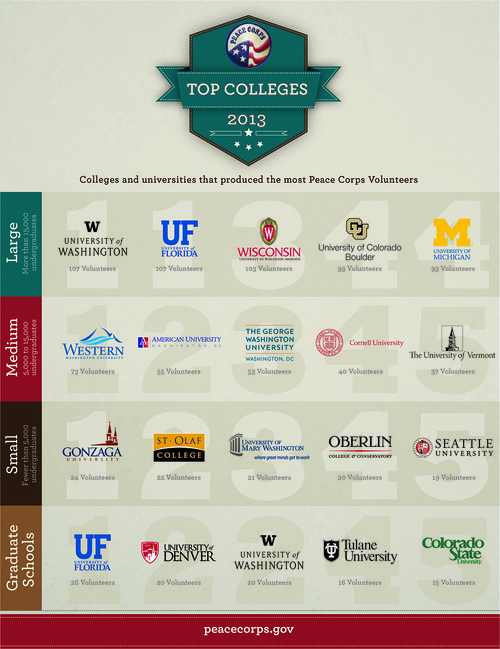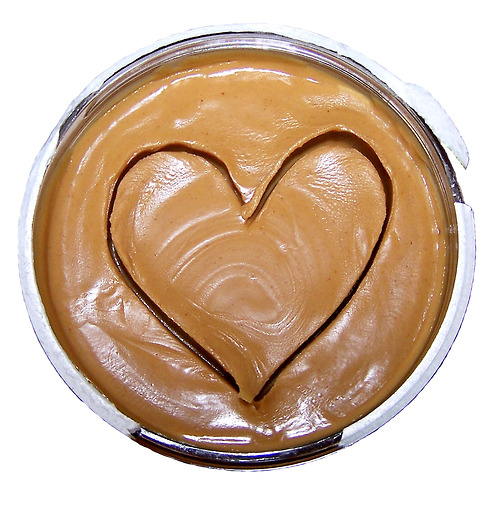An Open Letter
Dear Person Contemplating Joining Peace Corps,
I imagine that you’re at a transition point in your life. Perhaps you’ve just graduated, perhaps you’re going through a career change, perhaps you have an itch for something more that can’t be scratched. Whatever the reason, here you are: contemplating joining Peace Corps.
But should you? Is it right for you?
Honestly, you might not know that until you’ve arrived. You can research by reading books and official publications or by talking with current/returned volunteers, but everything you read and hear will probably tell you the same thing: every person’s experience is different. Your Peace Corps life will be uniquely shaped by your country, program, and site.
I’d like to think, though, that there are a few things that are universal throughout the Peace Corps world, and those things tend all to revolve around how you yourself will change - for the better and for the worse - because of your time in Peace Corps.*
‘Sanitary’ will become an obsolete concept. You will eat on mats that you know are saturated in urine. You will prepare food on counters that also serve as chicken roosts. You will not have consistent/frequent access to soap. You will eat street food that is undoubtedly questionable. You will be dirty, dusty, and sweaty at all times. You will have mind over body battles to force yourself to bucket shower in the winter. Bugs, lizards, chickens, ducks, and mice will crap on everything. These things will be ok. You’ll adjust. The sterile environment of the States will become a distant odd memory or a constant fantasy.
Your body, though, might not adjust as quickly. You will have parasites and infections and illnesses that you had never heard of before training. You will be constantly constipated. Or go the opposite extreme. I hate to say it, but you will probably poop in your pants at least once. You will learn to vomit over a squat toilet and into a plastic bag during a bus ride. You will discuss your bodily functions openly and enthusiastically with other volunteers. No topic will be taboo.
The way you communicate will completely transform. Learning a language from scratch through immersion is a powerful experience. You will learn to have complex communications though expressions, gestures, and basic vocabulary. You will learn to bond with another human being through silence. You will answer the same basic questions over and over and over again. You may never achieve the ability to discuss ideas and concepts. You will develop a new English language which consists of pared down vocabulary and grammatical structures. You will actively think of each word before you speak. Your speech patterns will slow. You will have to define words whose meanings you had always taken for granted. You will learn to listen.
Your concept of money will entirely alter. Paying more than $1 for anything will cause you to pause and question your purchase. You will understand value in the context of a different economic system. You will learn to barter, even on cheaper items. You will consistently feel as though you have been cheated on the price. You will be enraged by all prices upon returning to the States.
You will embrace the thrilling dichotomies of thrift versus splurge and ration versus binge. No one knows how to budget like a Peace Corps volunteer. And no one can binge like one.
You will be discontented with your work. You will wonder – and scream to the heavens – about the benefit of your presence. You will feel lost in unstructured expectations and crushed by promising ideas fallen to the side. Your expectations will fade into an unexpected reality. You will learn to celebrate small victories. You will look at mountains and see mole hills. You will try to tackle the impossible. Maybe you’ll succeed. Maybe you’ll just pick yourself up and take aim at another impossibility.
You will learn to do all of this through pure self-motivation. You will be the one to drag yourself out of bed and out the door. You won’t have anyone holding your hand or pushing your forward. Just you. You will become a stronger person for yourself, by yourself.
You will be a celebrity in your community. That status comes will hardships and benefits that will ineradicably change you. You will be the exception to the societal rules. You will be the foreigner, the one set apart. You will receive privileges and have special attention/status because of your nationality. You will always have eyes on you. You will have joined as an agent of culture exchange and understanding, but you will still find yourself falling into an ‘us versus them’ mentality. Use it. Consider it. Contemplate the value we place on people because of arbitrary characteristics. You will come away from your experience more attune to your own merits, to those that are deserved and to those that are given.
Your culture of personal space, one that maybe you have always taken for granted, will be challenged. You will wonder why you need an entire room to yourself while no one else even has a bed to himself. You still won’t want to give your room up. Privacy will be a privilege or a rarity, not a right.
You will lose all control of your emotions and be on an unpredictable roller coaster of extreme ups and downs. You will go from happy and confident to sullen and tearful by things as simple as ants in your candy or yet another child saying ‘Hello!’ Your highs will be high, but they will be fragile. Your lows will feel inescapable. Your family and friends in the States probably won’t understand this. Your isolation will force you to become your own support system. You will become aware of yourself in the context of solely being yourself.
Your government-issued friends will be your reprieve. The love and closeness you share with people back in the States won’t change, but it will be your fellow volunteers who understand. They will be friendships forged from necessity, and they will be deep and fervent.
You will witness a whole new way of life, and you will question your notion of necessity. You will consider your personal wealth, and people will constantly remind you of it. You will discover what your ‘needs’ are to live a productive, satisfied life. I hope you will remember that when you return to a culture of plenty.
You will be the biggest product of your Peace Corps work. You will change. And you will bring that change back with you.
*I insert a disclaimer: I believe the above assertions to be true for PC Cambodia, a program in its 6th generation of volunteers; I cannot speak with authority on other countries’ programs.




